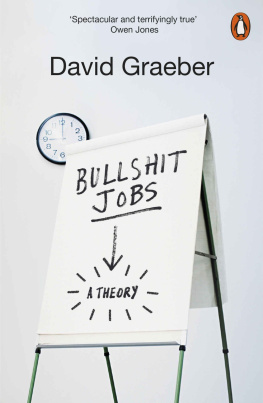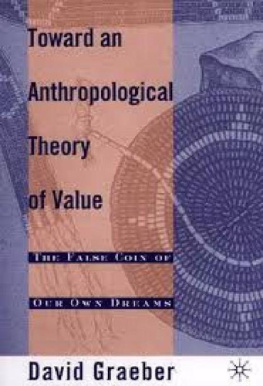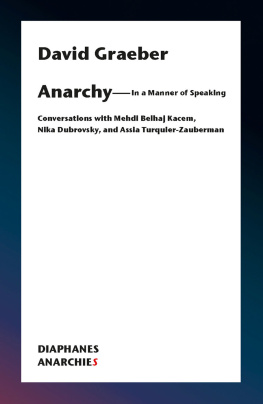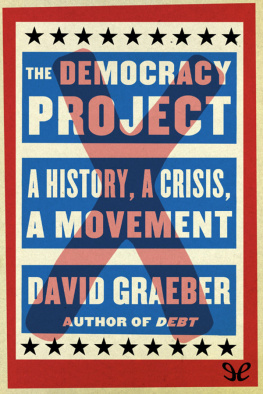Graeber - Pirate Enlightenment, or the Real Libertalia
Here you can read online Graeber - Pirate Enlightenment, or the Real Libertalia full text of the book (entire story) in english for free. Download pdf and epub, get meaning, cover and reviews about this ebook. publisher: Farrar, Straus and Giroux, genre: History. Description of the work, (preface) as well as reviews are available. Best literature library LitArk.com created for fans of good reading and offers a wide selection of genres:
Romance novel
Science fiction
Adventure
Detective
Science
History
Home and family
Prose
Art
Politics
Computer
Non-fiction
Religion
Business
Children
Humor
Choose a favorite category and find really read worthwhile books. Enjoy immersion in the world of imagination, feel the emotions of the characters or learn something new for yourself, make an fascinating discovery.

Pirate Enlightenment, or the Real Libertalia: summary, description and annotation
We offer to read an annotation, description, summary or preface (depends on what the author of the book "Pirate Enlightenment, or the Real Libertalia" wrote himself). If you haven't found the necessary information about the book — write in the comments, we will try to find it.
Pirate Enlightenment, or the Real Libertalia — read online for free the complete book (whole text) full work
Below is the text of the book, divided by pages. System saving the place of the last page read, allows you to conveniently read the book "Pirate Enlightenment, or the Real Libertalia" online for free, without having to search again every time where you left off. Put a bookmark, and you can go to the page where you finished reading at any time.
Font size:
Interval:
Bookmark:
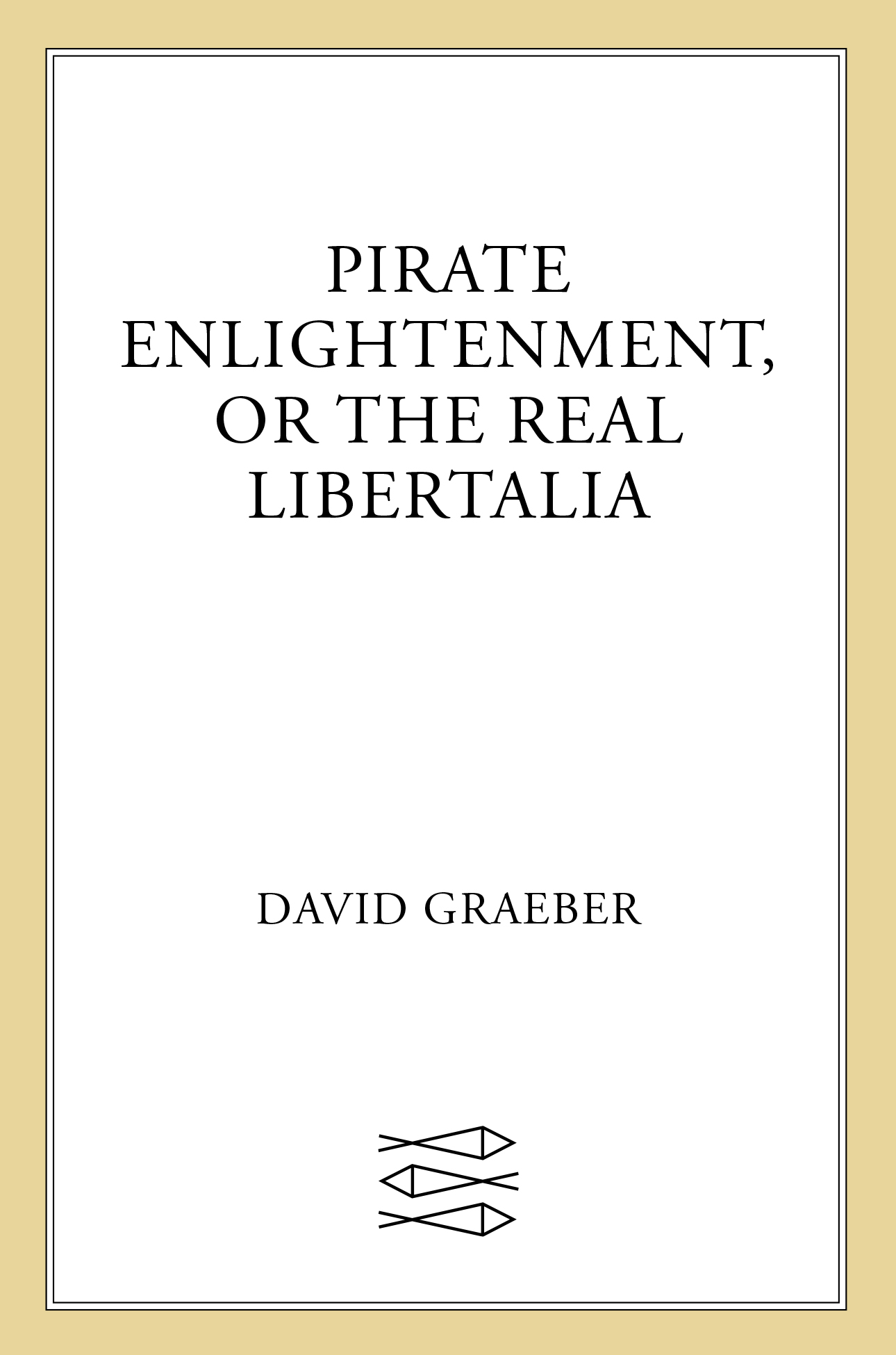

The author and publisher have provided this e-book to you for your personal use only. You may not make this e-book publicly available in any way. Copyright infringement is against the law. If you believe the copy of this e-book you are reading infringes on the authors copyright, please notify the publisher at: us.macmillanusa.com/piracy.
This essay was first written to be a chapter of a collection of essays about divine kingship that I coauthored with Marshall Sahlins. When I had been carrying out my original field research in Madagascar between 1989 and 1991, I first learned not only that many of the Caribbean pirates had settled in Madagascar, but, even more, that their descendants remained there as a self-identified group (a fact I discovered when I was briefly romantically involved with a woman whose ancestry harked back to Sainte-Marie). Later I was startled by the fact that no one had ever carried out systematic field research among them. I even made plans, at one point in my life, to carry out a fieldwork project among themplans that ended up short-circuited by life contingencies of one sort or another and never came to fruition. Someday I still might do it. I acquired a photocopy around that time of the Mayeur manuscript, after a visit to the British Library, which for a very long time sat in a pile of books and documents near a large picture window in the room in which Id grown up in my apartment in New York, on extremely large sheets of paper, barely legible in its eighteenth-century handwriting. For many years I often felt it was slightly reproachfully beckoning to me from across the room as I was trying to work on something else. Then when I lost my home to the machinations of Police Intelligence in 2014, I had the whole thing scanned, along with various family pictures and documents too bulky to bring with me to London, and eventually, I arranged to have it transcribed.
It was always something of a mystery to me that the text itself had never been published: especially since the British Library original, which had been composed in Mauritius, contained a little note explaining that a typescript version of the text could be found in the Acadmie Malgache in Antananarivo, and that if one wished to view it, one should consult with a certain M. Valette. Several essays by French authors who had clearly consulted with, and summarized, portions of this typescript had appeared, but the original manuscripta scholarly tome in its own right, replete with numerous critical footnotesnever had.
Eventually I realized I had accumulated enough material on the pirates to make an interesting essay in itself. The original titlesince it was supposed to be in an essay for a book on kingswas Pirate Enlightenment: The Mock Kings of Madagascar, the subtitle being a reference to a short book by Daniel Defoe about Henry Avery. In the process of writing, however, the essay grew and grew. Before long it was a good seventy single-spaced pages, and I began to seriously wonder both whether it would make the resulting compendium itself too long and whether the subject matter had drifted too far away from the original emphasis on fraudulent kings (and larger questions of whether all kings were in a sense impostors, with the differences between them being only matters of degree) to really justify inclusion.
In the end I decided: everyone hates a long essay; everyone loves a short book. Why not turn the essay into a freestanding work and let it stand on its own merits?
And that is what I have done.
The opportunity to publish the book with Libertalia Press proved impossible to resist. The image of Libertalia, the utopian pirate experiment, has remained an endless source of inspiration for those on the libertarian left; it has always been felt that even if it did not exist, it should have existed; or even if it did not exist in any literal sense, even if there was never any actual settlement that bore that name, the very existence of pirates and pirate societies was itself a kind of experiment, and that even at the deepest origins of what has come to be known as the Enlightenment project, one now seen in revolutionary quarters as a false dream of liberation that has instead unleashed unspeakable cruelty upon the world, there was a kind of redemptive promise of a genuine alternative.
Intellectually, this small book can be seen as one contribution to a larger intellectual project that I first laid out in an essay called There Never Was a West (which also appeared as a small freestanding book in French), and that Im now pursuing as part of a joint project with the British archaeologist David Wengrow. In the language currently fashionable, it might be referred to as a project of decolonizing the Enlightenment. There can be no doubt that many of the ideas we now see as products of the eighteenth-century European Lumires were, indeed, used to justify extraordinary cruelty, exploitation, and destruction, not just on the working classes at home, but on those who lived on other continents. But the blanket condemnation of Enlightenment thought is in its own way rather odd, when one considers that this was perhaps the first historically known intellectual movement organized largely by women, outside of official institutions like universities, with the express aim of undermining all existing structures of authority. Whats more, if one examines many of the original sources, Enlightenment thinkers were often quite explicit that the sources of their ideas lay outside what we now call the Western tradition entirely. To take one example, which will be developed in another book, in the 1690s, just around the time the pirates were establishing themselves in Madagascar, there was something of a proto-Enlightenment salon being held in Montreal in the home of the Comte de Frontenac, then governor of Canada, in which he and his assistant, Lahontan, debated questions of social importanceChristianity, economics, sexual mores, etc.with a Huron statesman named Kandiaronk, who took the position of an egalitarian and skeptical rationalist and held that the punitive apparatus of European law and religion was made necessary only by an economic system arranged in such a way that it would inevitably produce precisely the behaviors that apparatus was designed to repress. Lahontan was later to release his own redaction of his notes from some of these debates as a book, in 1704, and that book rapidly became a bestseller across Europe. Almost every major Enlightenment figure ended up writing an imitation of it. Yet somehow, figures like Kandiaronk have been written out of history. No one denies these debates actually happened; rather, the assumption is always that when it came time to write up accounts of what happened, men like Lahontan simply ignored everything Kandiaronk actually said and substituted some kind of noble savage fantasy drawn entirely from the European intellectual tradition. In other words, we have projected backward the idea that there was a self-contained Western civilization (a concept that didnt even really exist until the early twentieth century) and, with a genuinely perverse irony, used accusations of racial arrogance on the part of those we designate Westerners (basically now a euphemistic code word for white people) as a pretext to exclude everyone not designated white from having any influence on history, and intellectual history in particular. Its as if history, and especially radical history, has become some sort of moral game where all thats really important is to make clear just how much one is not letting the Great Men of history off the hook for the (obviously, very real) racism, sexism, and chauvinism they displayed, without somehow noticing that a four-hundred-page book attacking Rousseau is still a four-hundred-page book about Rousseau.
Font size:
Interval:
Bookmark:
Similar books «Pirate Enlightenment, or the Real Libertalia»
Look at similar books to Pirate Enlightenment, or the Real Libertalia. We have selected literature similar in name and meaning in the hope of providing readers with more options to find new, interesting, not yet read works.
Discussion, reviews of the book Pirate Enlightenment, or the Real Libertalia and just readers' own opinions. Leave your comments, write what you think about the work, its meaning or the main characters. Specify what exactly you liked and what you didn't like, and why you think so.

